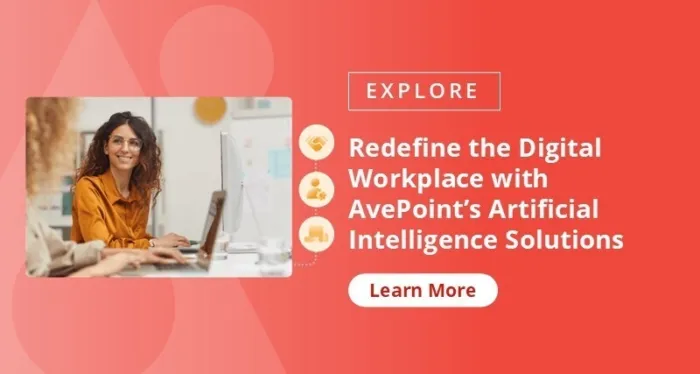Earlier this year, I was fortunate enough to spend some time with Joe Brazier, Worldwide K12 Strategy Management Manager at Microsoft, including interviewing him for the pilot episode of The Tech Edge series. Joe was kind enough to share his thoughts on AI’s transformative impact on the workplace and its implications for business leaders. Even though the episode aired much earlier in the year, it’s worth revisiting, as all of what Joe has to say is resonating even more as the rapid adoption of AI continues to affect many sectors.
The Changing Landscape of AI in the Workplace
Thinking about the changing landscape of work goes further than just AI adoption; the entire workforce, as we know it, is changing. There is a generation of users entering the workforce now who have never lived in a world without instant access to technology and for whom using AI tools is as natural as using spell check for the rest of us.
This became very evident when I recently tried to use a hand gesture to mimic rolling a window in the car down, and my preteen had no idea what I was doing. She’s never been in a car without electric windows!
Joe notes that the rapid adoption of AI is forcing business leaders to rethink their strategies, cultures, and definitions of productivity. He stated, “AI adoption is not so much about the tool, but the people involved in it.” This shift requires leaders to focus on leveraging AI to enhance productivity while allowing room for growth, learning, and innovation.
Joe makes an important point here when talking about the people involved with the technology. As the workforce continues to change, so must our approach to technology and innovation.
The Pace of AI Adoption
Another area we’ve seen subject to rapid change is the astonishing speed at which AI technologies, particularly generative AI like Microsoft Copilot and ChatGPT, have been adopted. ChatGPT reached 100 million users in just three months, a feat that took other technologies much longer to achieve.
Joe acknowledged that this rapid pace has left many business leaders feeling flustered and concerned about keeping up and explained that the next few years will see even more acceleration in AI development, making it essential for leaders to prepare for continuous change. He said, “We’re not going to recognize where we are a year from now,” highlighting the need for adaptability in the face of such rapid advancements. (I’m not sure I recognize myself from last week, but that might be an unrelated problem).
Balancing Excitement and Fear
The conversation also touched on the mixed emotions business leaders experience regarding AI adoption. Joe likened it to being at the top of a roller coaster, where excitement and fear coexist. He emphasized the importance of mitigating fear by establishing guardrails, guidelines, and policies while encouraging innovation and out-of-the-box thinking.
In addition to this, ethical and responsible implementation of AI is crucial. Building on Joe’s roller coaster analogy, there is an inescapable need for safety measures. Basically, “We want to be assured that somebody has checked the bolts and there is a safety program in place.”
Recommendations for Business Leaders
No one denies that the world is rapidly changing, and technology is a significant driver of this. We’re seeing this start in our educational institutions, and Joe says, “You’re going to really need to make sure that you’re encouraging growth and learning and education. You’re encouraging your employees and your people to build their own literacy around AI.”
So where does this leave us as business leaders, and what can we take from this conversation so we can ride the AI roller coaster with confidence while having fun at the same time?
- Invest in Education and Skill Development: Joe emphasized the importance of education in adapting to AI. He advised leaders to “go use the tools, try out the tools, find out how you want to use them.” Encouraging employees to build their AI literacy and experiment with new technologies will help organizations stay ahead of the curve.
- Foster a Culture of Innovation and Learning: It is essential to create an environment that supports continuous learning and innovation. Joe highlighted the need for leaders to act as coaches and guides, allowing employees to explore and learn from their experiences. This approach will enable organizations to harness AI’s full potential while fostering a culture of growth.
- Implement Ethical and Responsible AI Practices: Ensuring that AI is implemented ethically and responsibly is critical. The roller coaster analogy is good because it underscores the importance of having robust safety measures in place for something that can be both fun and scary. Business leaders should establish clear guidelines and policies to ensure that AI technologies are used in ways that benefit all stakeholders and do not exacerbate existing inequalities. But more importantly, the point of the roller coaster is to have fun and do something out of the box; the same can be said of AI. It gives us an incredible opportunity to tackle big problems in a new and unique way.
Balancing Innovation and Ethics in AI Adoption
Business leaders need to rethink their strategies, embrace continuous learning, and implement AI responsibly. By following these recommendations, leaders can navigate the rapidly evolving AI landscape and drive their organizations toward a successful future.
Moreover, the roller coaster analogy aptly captures the dual nature of AI adoption — exhilarating yet daunting. Business leaders must strike a balance between harnessing AI's innovative potential and ensuring that ethical considerations are not overlooked. This balance is crucial for fostering trust and maintaining a positive organizational culture amid the rapid technological changes.
Additionally, the emphasis on education and skill development cannot be overstated. As AI continues to evolve, the ability to adapt and learn new skills will be a significant differentiator for both individuals and organizations. Leaders who prioritize continuous learning and provide opportunities for their teams to experiment with AI tools will be better positioned to leverage these technologies effectively.
Finally, fostering a culture of innovation and learning will not only help organizations stay competitive but also ensure that employees feel valued and engaged. By encouraging a mindset of exploration and growth, leaders can create an environment where AI is seen as an enabler of creativity and productivity rather than a threat.
The insights from “The Tech Edge” highlight the transformative potential of AI and the critical role of business leaders in guiding their organizations through this transition. By investing in education, fostering innovation, and implementing AI ethically, leaders can ensure that their organizations thrive in the age of AI. The journey may be akin to a roller coaster ride, but with the right strategies and mindset, it can lead to unprecedented growth and success.
You can check out this episode and more at The Tech Edge - Ticker page.


